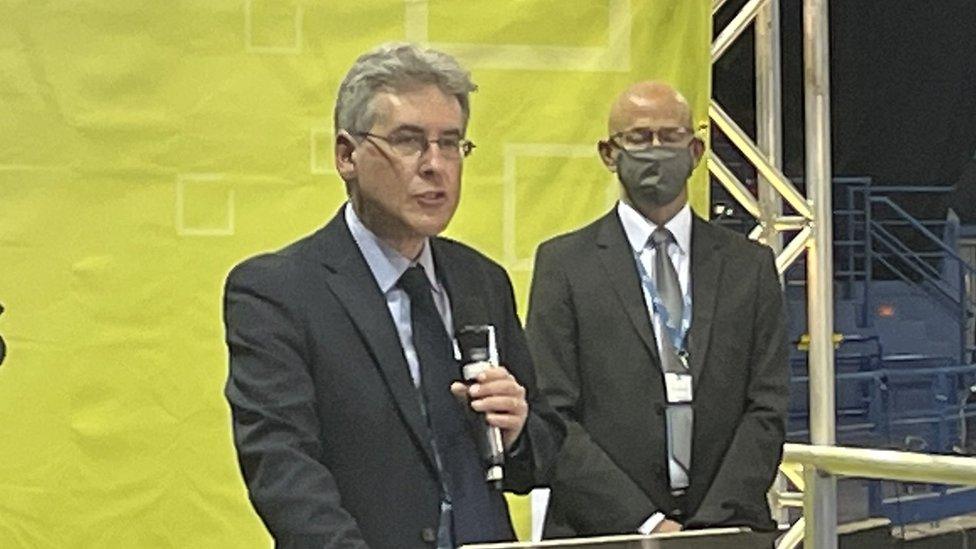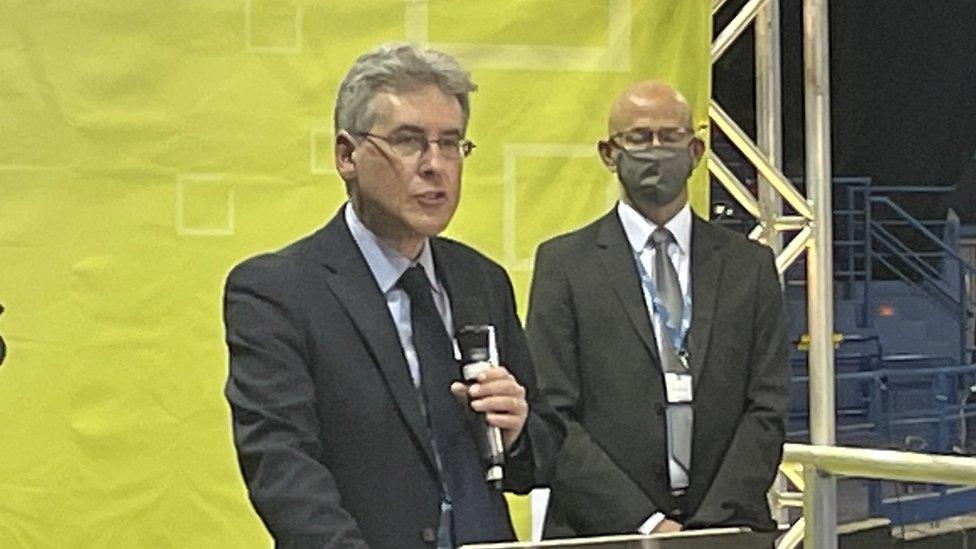West Midlands PCC pledges to crack down on knife crime
- Published

Simon Foster was elected to the role on Saturday
Tackling knife crime in the West Midlands will be one of the priorities for the region's new police and crime commissioner (PCC).
Solicitor Simon Foster was elected to the role as a Labour candidate on Saturday, replacing David Jamieson, who has retired after seven years.
He won with a total of 301,406 votes, beating Conservative Jay Singh-Sohal.
Mr Foster said he also wanted to strengthen community policing, reduce violent crime and domestic violence.
Tackling domestic abuse against women was a priority "because home should be a place of safety and security" and it can have "devastating and catastrophic consequences for people and families", he said.
Increasing the number of community police after they had fallen over the past decade was also key, he said.
'Community buy-in'
There have been cuts of over 50% to community policing in the West Midlands between 2010 and 2018 seeing numbers drop from 1,800 officers to just 700, he added.
"It was always my core pledge throughout my campaign and that's why I pledge 450 extra officers in community policing throughout the West Midlands," he said.
Mr Foster said there had also been a "flagrant breach on the part of central government" over the last 10 years in reducing violent crime, in particular knife crime.
To combat that, he said he would increase community policing and work with the West Midlands' mayor and local authorities to restore youth services.
"We know the West Midlands suffered disproportionately in relation to cuts to youth services in the last 10 years - 82% across the West Midlands in terms of cuts to youth services," he said.
Mr Foster said he wanted to work more with schools to stop or reduce school exclusions so vulnerable children are not on the streets, improve statutory safeguarding and invest in Violence Reduction Units.
"We need joint working - the police can't solve this issue on their own," he added.
"It's got to be a collective joint effort between the police between statutory bodies... but most importantly communities.
"We have to have community buy-in if we're going to solve these problems."

Follow BBC West Midlands on Facebook, external, Twitter, external and Instagram, external. Send your story ideas to: newsonline.westmidlands@bbc.co.uk
Related topics
- Published8 May 2021
